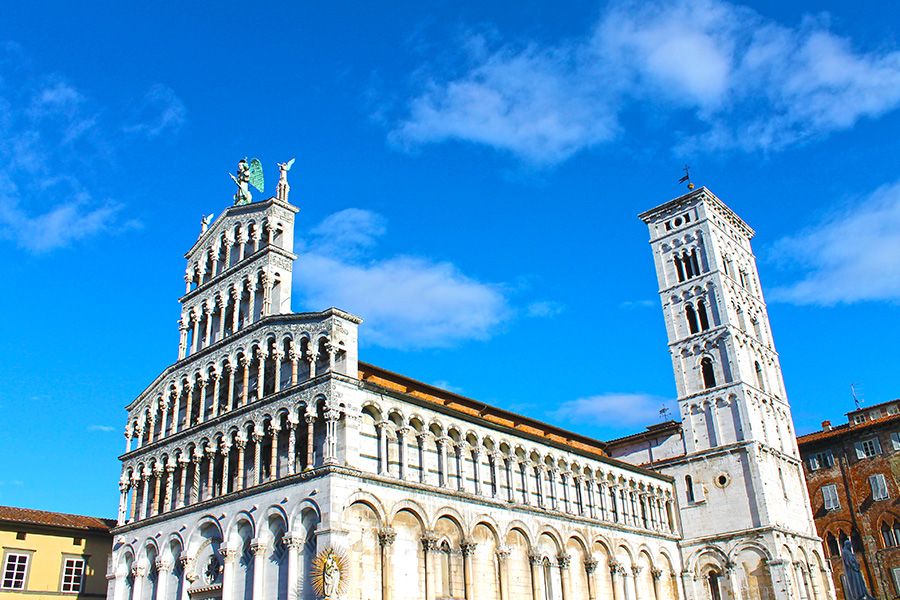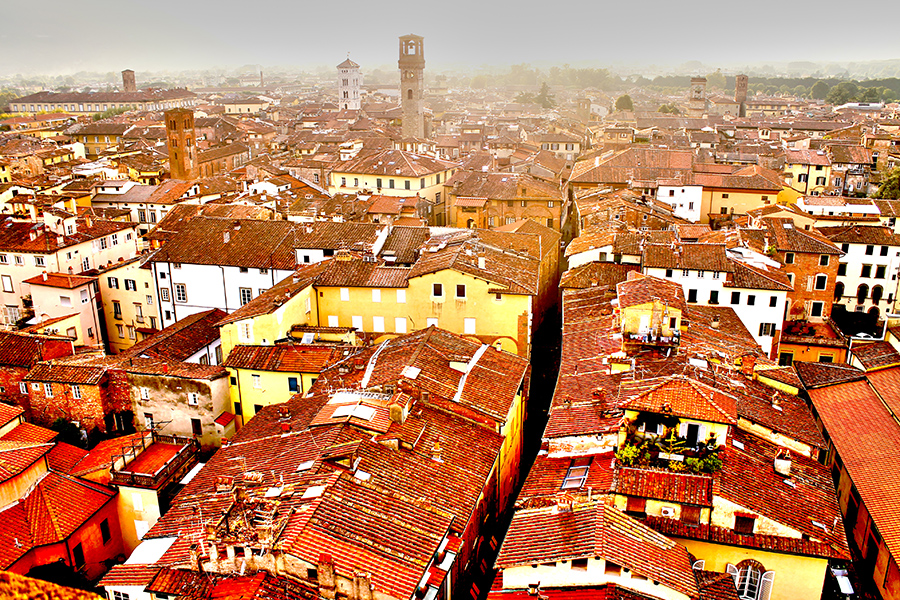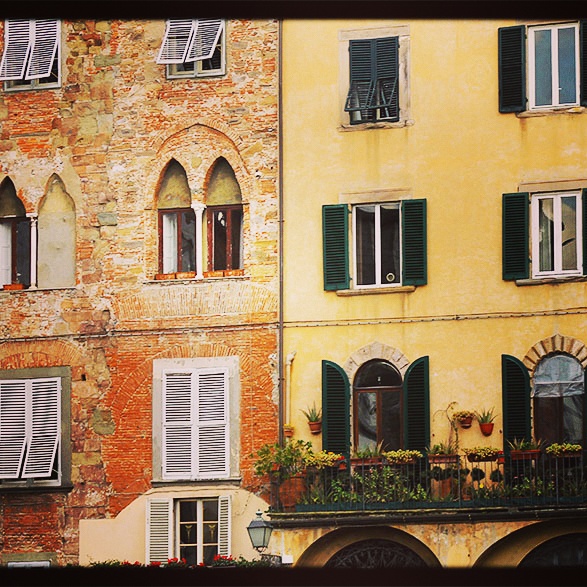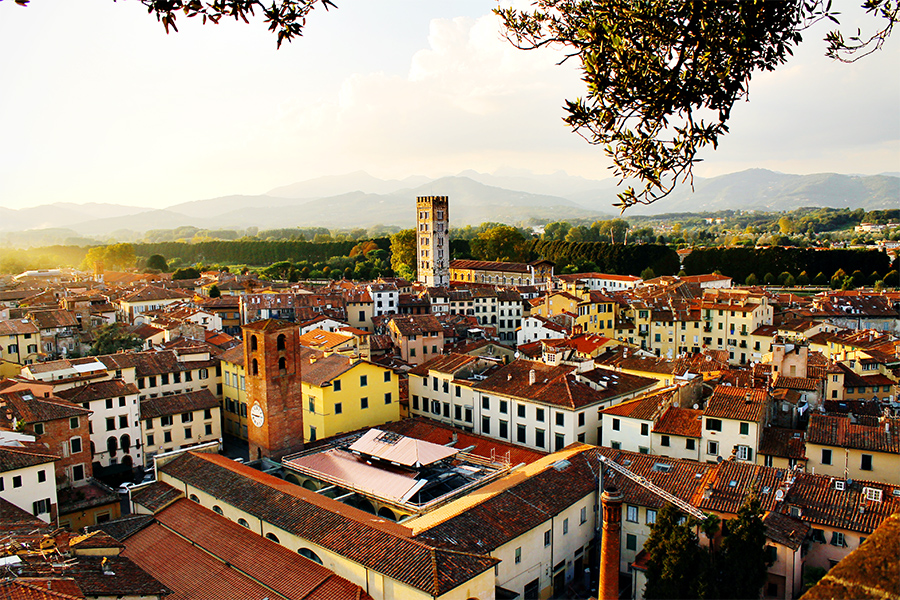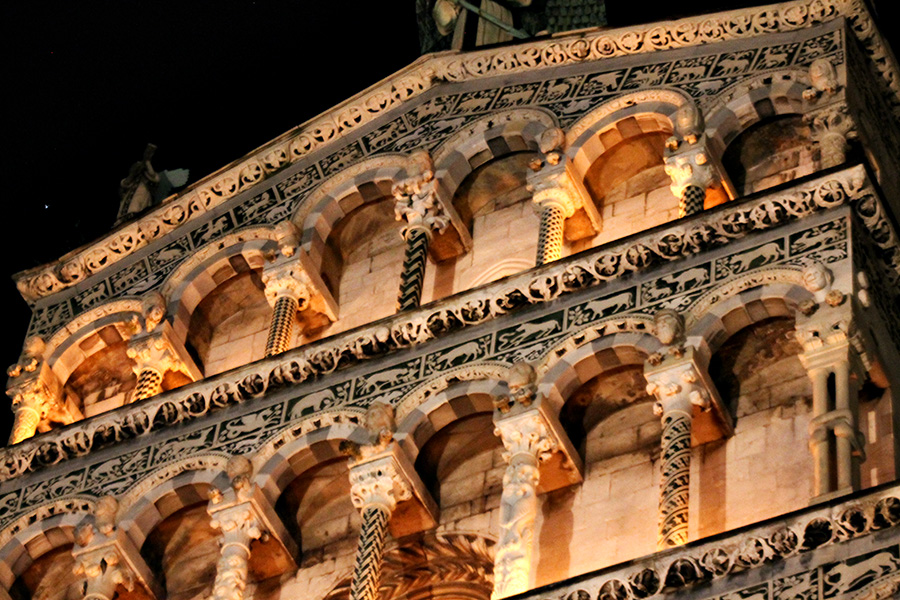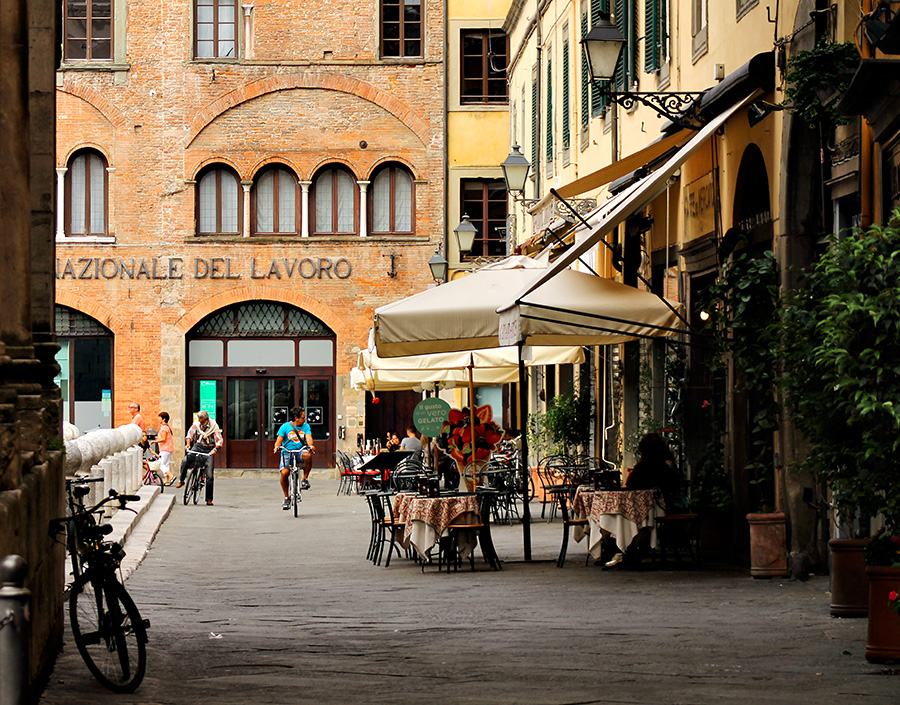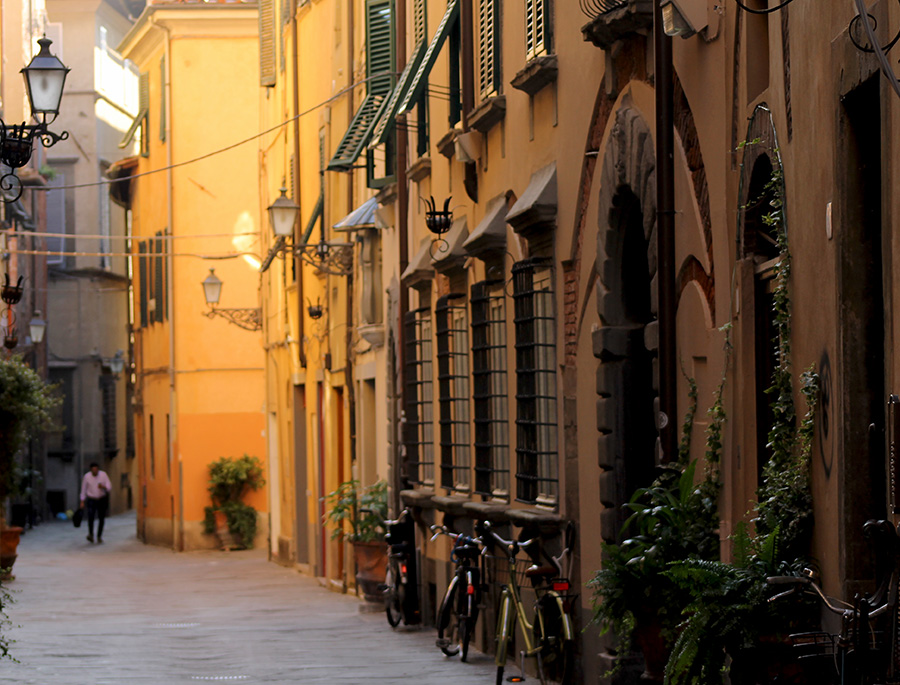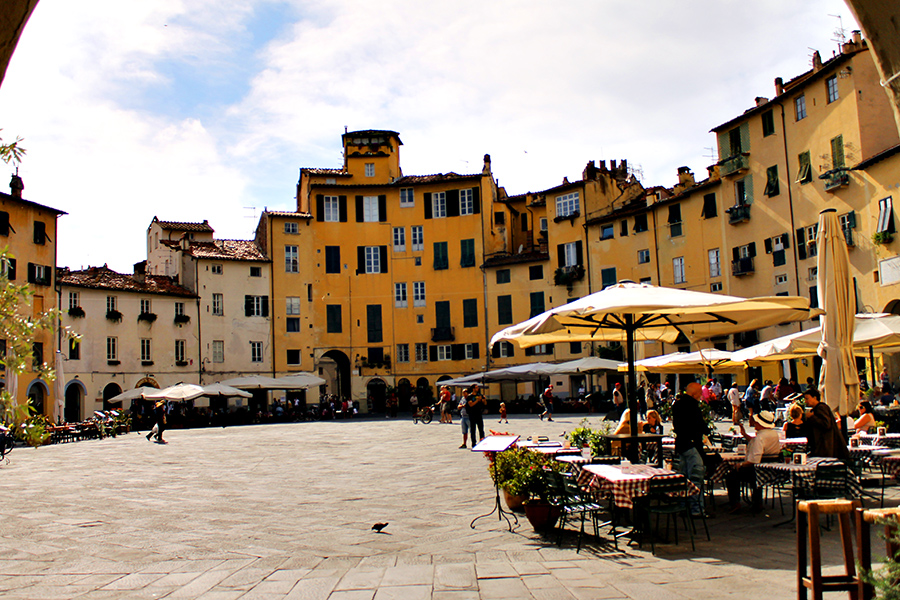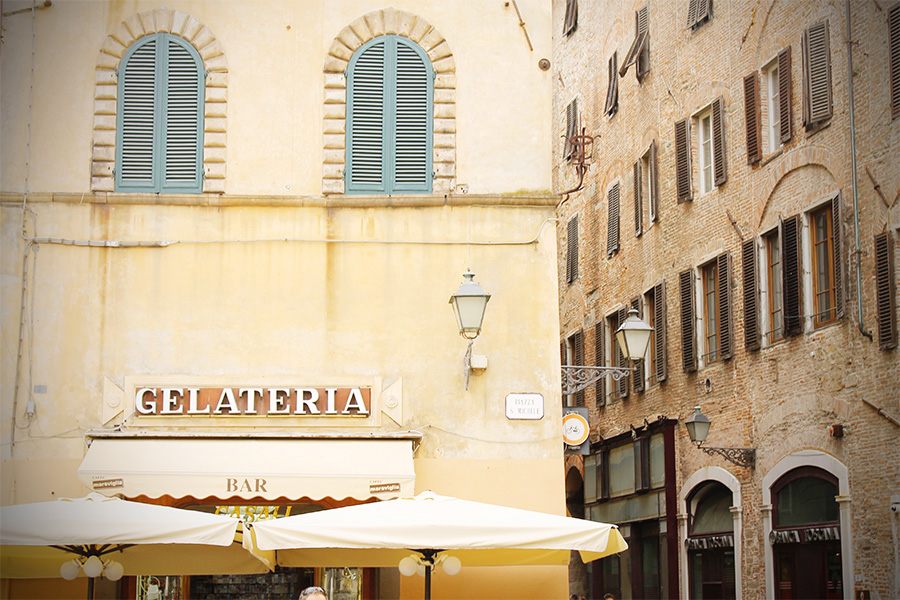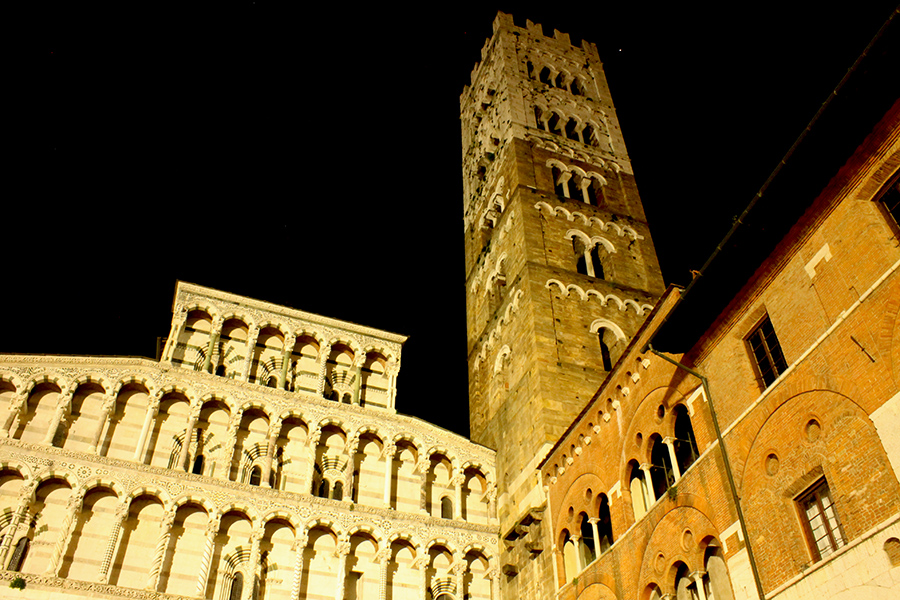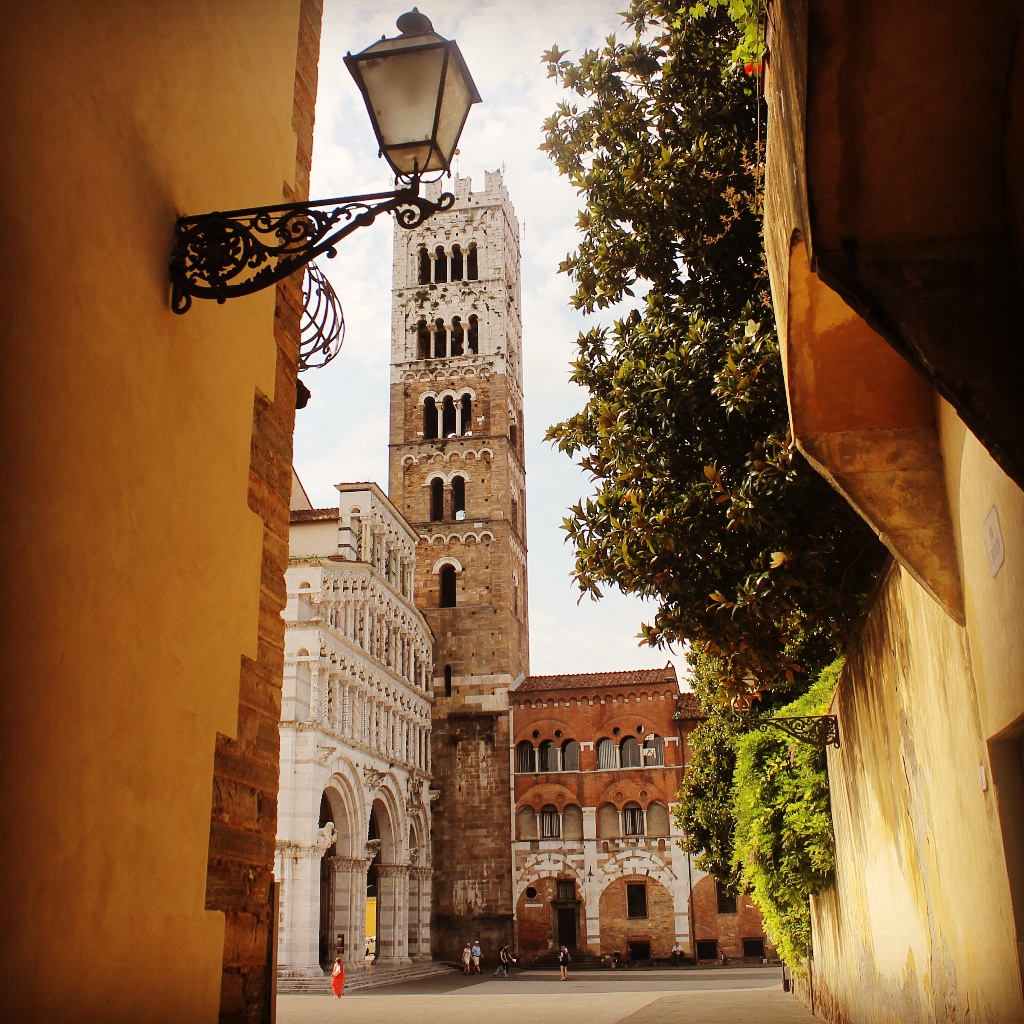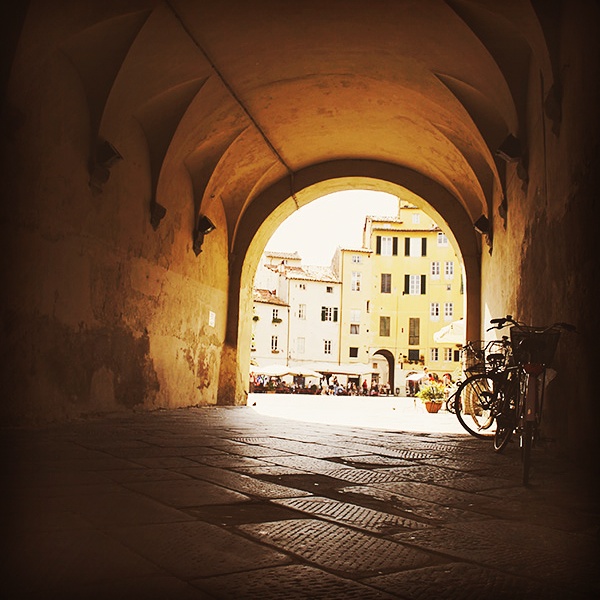Auditorium – Agora Cultural Centre
Via delle Trombe, 6 (Piazza dei Servi, Centro Storico) 55100 Lucca Tuscany, ItalyConference Agenda
- June 14, 2018
- 09:00 - 09:30Registration (Registration Desk – Auditorium, Agora Cultural Centre)
- 09:30 - 10:30Welcome and Opening Remarks / Opening Workshop: Researching Identities Today
- 10:30 - 11:00Coffee Break
- 11:00 - 13:00Panel 1: Thinking Identities Today and Practices of Politicization: Class, Groups, Markets and Legal Integrations of Identities
- 13:00 - 14:30Tuscan Specialties Lunch – Restaurant
- 14:30 - 17:00Panel 2: Identity and the ‘Visual Turn’ in Social Representations: Visual Identitarian Discourses in Various Mediums from Brand Logos to Caricature, Sequential Art and Photography
- 16:30 - 17:00Coffee Break
- 17:30 - 19:30Panel 3: Identities and the Cities: Urban Transformations, Transition and Change in Urban Image Construction
- 19:30 - 20:00Welcome ‘Aperitivo’ Drink Out in Lucca
- 20:00 - 21:00Optional Tuscan Dinner Out in Lucca
- June 15, 2018
- 08:30 - 10:30Panel 4: Politics of Identity: Social and Intellectual History Readings of Identity Making Practices from Protest, Rituals, Gendered Practices, Indigenous Identities, Heritage and Cultural Policy
- 10:30 - 11:00Coffee Break
- 11:00 - 13:30Panel 5: Performing Identities: The Relationship between Identity and Performativity in Film, Theatre and Literature
- 13:30 - 15:00Tuscan Specialties Lunch – Restaurant
- 15:00 - 17:00Panel 6: Art, History and Identity Making: Visual Narratives of Identity
- 17:00 - 17:30Coffee Break
- 17:30 - 19:30Panel 7: Urban Identities and Spaces as Sites of Cultural Identitarian Production: Form Art Spaces to City Museums and World Exhibitions
- 19:30 - 20:00Closing Session: Concluding Remarks and Discussions
- 20:00 - 21:00Optional Social Dinner Out in Lucca
- June 14, 2018
Identities and Identifications: Politicized Uses of Collective Identities (7th Edition)
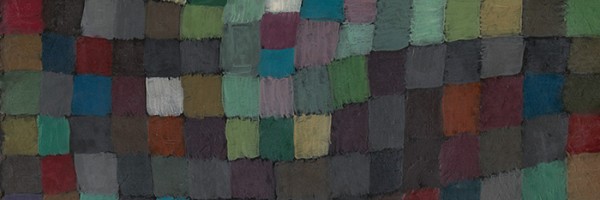
- Conference Description
- Participant’s Profile
- Registration and Fee
- Social Activities and Publication
- Important Dates
- Venue and Directions
- Conference Program
- Panel 1
- Panel 2
- Panel 3
- Panel 4
- Panel 5
- Panel 6
- Panel 7
The 7th Euroacademia International Conference
Identities and Identifications
Politicized Uses of Collective Identities
14 – 15 June 2018
Agora Cultural Centre
Lucca, Tuscany, Italy
Conference Description
Identity is one of the crown jewelries in the kingdom of ‘contested concepts’. Few concepts are so integral to social assumptions, beliefs and claims of belonging while simultaneously escaping a clear definition or even a minimal consensus. The idea of identity is conceived to provide some unity and recognition while it also exists by separation and differentiation. From personal to group and collective identities, multiple layers of identifications juxtapose, conflict or exclude. Few concepts were used as much as identity for contradictory purposes. From the fragile individual identities as self-solidifying frameworks, to layered in-group identifications in families, orders, organizations, religions, ethnic groups, regions, nation-states, supra-national entities or any other social entities, the idea of identity always shows up in the core of debates and makes everything either too dangerously simple or too complicated. Constructivist and de-constructivist strategies have led to the same result: the eternal return of the topic. Some say we should drop the concept, some say we should keep it and refine it, some say we should look at it in a dynamic fashion while some say it’s the reason behind the resistance to change. In the meantime, identities are programmatically asserted and promoted to generate cohesion and demand recognition while the process of identification excludes and creates boundaries and alterity making practices.
If identities are socially constructed and not genuine formations, they still hold some responsibility for inclusion/exclusion – self/other nexuses. Looking at identities in a research oriented manner provides explanatory tools for a wide variety of events and social dynamics. Identities reflect the complex nature of human societies and generate reasonable comprehension for processes that cannot be explained by tracing pure rational driven pursuit of interests. The feelings of attachment, belonging, recognition, the processes of values’ formation and norms integration, the logics of appropriateness generated in social organizations, are all factors relying on a certain type of identity or identification. Multiple identifications overlap, interact, include or exclude, conflict or enhance cooperation. Identities create boundaries and borders; define the in-group and the out-group, the similar and the excluded, the friend and the threatening, the insider and the ‘other’. Even more, identities generate legitimating circumstances for social and political action; assert the power of naming and rules of belonging while setting the stage for the perception of the other. The other can be internal, as difference and incomplete coherence with the in-group, or external as acknowledged difference or even in cases of radical alterity as perceived threat. The formation of identities can lead to multicultural integration of diversity, tolerance, recognition and pluralism while simultaneously exclude and build walls.
Beyond their dynamic fuzzy nature that escapes exhaustive explanations, identities are effective instruments for the politicization of social life. The construction of social structures and of specific social practices together with their imaginary significations, requires all the time an essentialist or non-essentialist legitimating act of belonging; a social glue that extracts its cohesive function from the identification of the in-group. Identities are political. Multicultural values populate extensively the twenty-first century, yet the distance between the ideal and the real multiculturalism persists while the virtues of inclusion coexist with the adversity of exclusion. Dealing with the identities means to integrate contestation into contestation until potentially a ‘n’ degree of contestation. Due to the confusion between identities and identifications, some scholars demanded that the concept of identity shall be abandoned. Identitarian issues turned out to be efficient tools for politicization of a ‘constraining dissensus’ while universalizing terms included in the making of the identities usually tend or intend to obscure the localized origins of any identitarian project. Identities are most often advanced as intentional concepts: they don’t say anything about their sphere but rather defining the sphere makes explicit the aim of their usage. It is not ‘identity of’ but ‘identity to’.
The 7th Euroacademia International Conference ‘Identities and Identifications: Politicized Uses of Collective Identities’ aims to scrutinize the state of the art in collective identities research, to bring once more into debate the processes of identity making, identity building in both constructivist or de-constructivist dimensions. The conference will include a wide variety of contributions on identity making practices while fostering a critical assessment of intended or unintended consequences that lead to the politicization of identities. It is the aim of the Euroacademia conference to open the floor to dynamic multi-dimensional and inter-disciplinary understandings of identities in their historic formation or in the way they shape the present and future of organizations or communities. The conference however seeks also to integrate and address the misunderstandings or misconceptions implicit to identity formation practices. A focal place will be given to methodological refinement and innovation in the research of identities in a broad spectrum of disciplines.
Euroacademia aims to bring together a wide network of intellectuals, academics, researchers, practitioners and activists that are willing to share and open to debate their research on identity related topics. Disciplinary, trans and inter-disciplinary approaches, methodological assessments, innovations and recommendations, single case studies or cross-sectional analyses, reflective essays, experience sharing or works addressing new puzzles are all welcomed.
Participant’s Profile
The conference is addressed to academics, researchers and professionals with a particular interest related to the topic of collective identities from all parts of the world. Senior and junior researchers are equally welcomed. As the nature of the conference is intended to be multidisciplinary in nature, different academic backgrounds are welcomed and the event aims to foster multi-disciplinary dialogue and inter-disciplines interaction.
Post-graduate students, doctoral candidates and young researchers are welcomed to submit an abstract. Representatives of INGOs, NGOs, Think Tanks and activists willing to present their work or projects with impact on or influenced by specific understandings of identities are welcomed as well to submit abstracts of their contributions.
Abstracts will be reviewed and the participants are selected based on the proven quality of the abstract. The submitted paper for the conference proceedings is expected to be in accordance with the lines provided in the submitted abstract.
Registration and Fee
The Registration Process is Now Closed
The Participation Fee Includes:
- the registration fee
- participant’s package with all the materials for the conference
- eligibility for publishing the presentation in the conference follow-up publications
- access to Euroacademia discussion group and newsletters
- 2 daily coffee brakes during the conference
- a welcome drink and Tuscan aperitivo on 14th of June 2018
- a 3 course Tuscan specialties lunch on 14th of June 2018
- a 3 course Tuscan specialties lunch on 15th of June 2018
- certificate of attendance
- access to optional social program
Unfortunately, Euroacademia has no available funds for covering transport and accommodation to/in Lucca. Participants are responsible for securing funding to cover transportation and accommodation costs during the whole period of the conference. Official invitation letters can be sent by Euroacademia to the financing institution to confirm the selection and participation in the conference upon request.
Social Activities and Publication
A specific spot in the conference program will be dedicated to social networking and therefore all the participants interested in setting or developing further cooperation agendas and prospects with other participants will have time to present and/or promote their project and express calls for cooperation.
A specific setting (Social Corner) for promotional materials connected with the topic of the conference will be reserved for the use of the participants. Books authored or edited by the participants can be exhibited and promoted during the whole period of the conference and can also be presented within the conference package based on prior request and arrangements.
Photos and videos will be taken during the conference and the organizers will consider through the participation of selected presenters or members of the audience that the agreement for being photographed or filmed during the event was granted through registration to the event. Please notify the organizers in written form prior to the the event if you are a confirmed participant and would prefer otherwise.
An optional dinner and as social event will be organized for the first and second evening of the conference in a typical Tuscan cuisine restaurant as optional program for the willing participants. The social dinner will be held based on participant’s prior confirmation and it will be covered by the participants individually at the restaurant.
Publication:
Selected papers will be eligible for publishing in thematic volumes or published in an electronic volume with ISBN after the confirmation of the authors and a double peer-review process based on an agreed publication schedule after the conference. All the papers selected for publication should be original and must have not been previously published elsewhere.
Important Dates
| Important Dates | |
|---|---|
| 20th of April 2018 | Deadline for Submitting Panel Proposals |
| 7th of May 2018 | Deadline for Paper Proposals: 300 words abstracts and details of affiliation |
| 8th of May 2018 | Latest notification of acceptance |
| 10th of May 2018 | Sending the Registration Form |
| 15th of May 2018 | Payment of the conference fee |
| 1st of June 2018 | Sending the draft paper to be uploaded on the web site of the conference |
| 5th of June 2018 | Publication of the conference program and uploading the draft papers on the website |
| 14h of May 2018 | The conference commences at 9.00 am |
Venue and Directions
The proceedings of the conference will take place in the Auditorium of the Cultural Centre Agora in Lucca. The Auditorium is part of the Convento dei Padri Serviti built around 1300 by the order of Servi di Maria.The Auditorium is the restructured space of the Oratory of S. Lorenzo, built in 1480, but whose structure and interior was renovated without changes or interventions. A former church now de-consecrated, the Auditorium preserves all its historical architecture and features. The space above the area of the former altar includes a fresco of Guidotti, a well known painter from 1600, that represents the miracle of San Silao. Eventual additional events to the proceedings may take place in other specific rooms of the Agora Culutral Center. The location of the event is centrally situated right in the heart of Lucca, few steps away from the San Martino Cathedral of Lucca, Piazza San Michele with its beautiful San Michele in Foro church and the renaissance walls that surround the historical city, making easily accessible within a walking distance any part of its amazing Middle Ages or Renaissance treasures. Via delle Trombe, 6 (Piazza dei Servi, Centro Storico) Lucca is one of the most beautiful cities of Tuscany, a treasure of beauty, culture and history, preserving exquisitely the signs of past kingdoms and dominions, the beauty of nature and the works of many renown architects and artists. Dante spent a part of his exile in Lucca. Located between Florence and Pisa, Lucca is the home town of Giacomo Puccini and Luigi Boccherini. Is a town where each of the streets has a story to tell. The city walls are the best preserved Renaissance walls in the world, offering the opportunity of a relaxing and enchanting ‘passeggiata’ (promenade) or a bike ride with amazing views over the surroundings. Piazza Napoleone -one of the main squares – was built in the time of Napoleonic conquest when the city was led by Napoleon’s sister Elisa Bonaparte. It is rivaled in beauty by Piazza del Amfiteatro, built to maintain the shape of the Roman Amphitheater built during the I and II centuries that could accommodate over 10,000 spectators. A city of 100 churches, Lucca is labyrinth of small streets that hide secrets to be discovered.
Agora Cultural Centre
55100 Lucca Tuscany, Italy
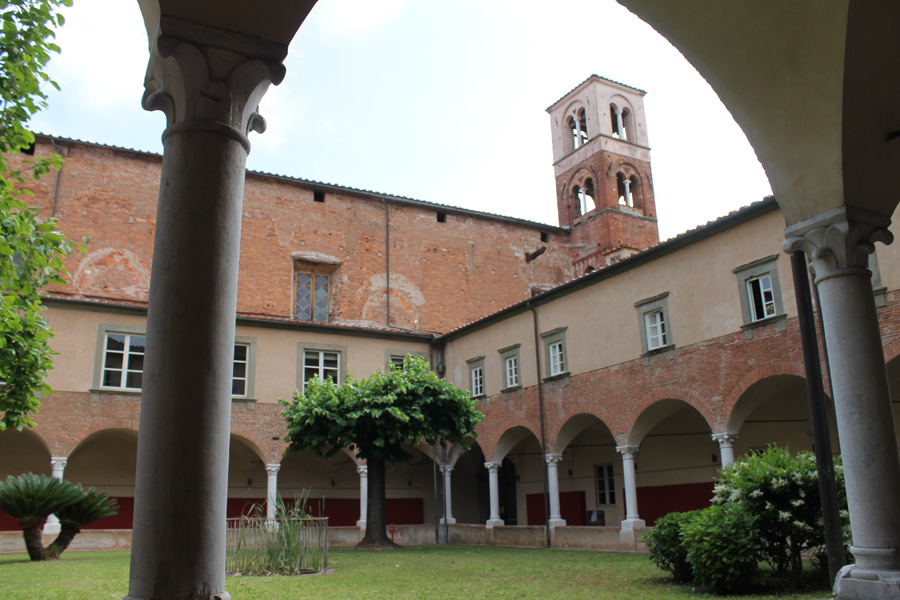
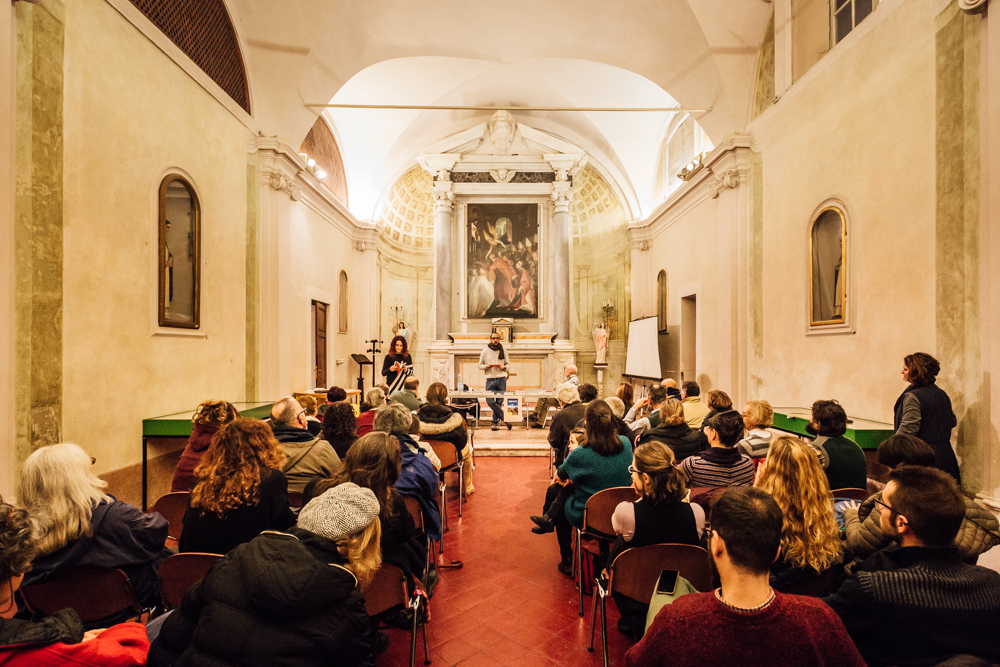
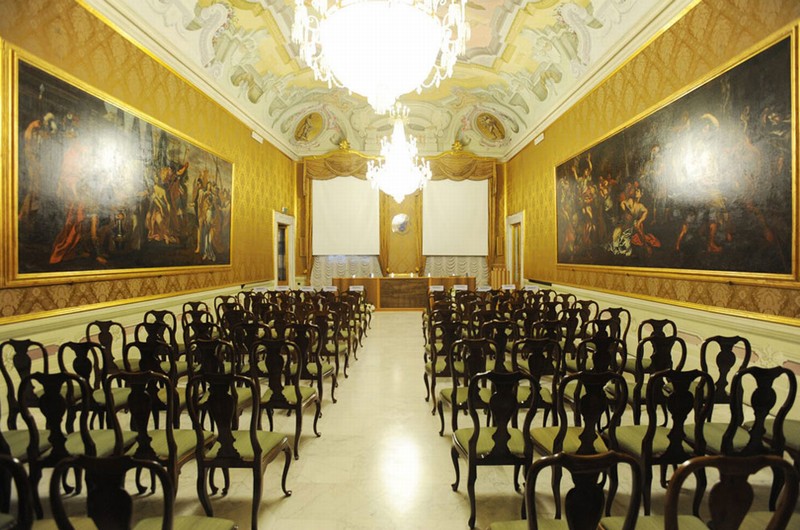
Lucca is very easy to reach both by bus as well as train from both Pisa and Florence, making it perfect for anyone getting around solely on public transportation. The train station is right outside the southern walls, with an entrance below the balcony of San Colombano that brings you right behind Lucca’s cathedral and into the heart of the small walled town. When arranging your travel by plane, book a flight to Florence (Petrola) or Pisa (Galileo Galilei) airports. The easiest way to reach Lucca is from Pisa airport that requires a 25 minutes public bus or train travel right from the airport. From Florence the travel by bus or train takes about 50 minutes. Make sure that your flight arrives earlier during the day as after 22.00 buses or trains to Lucca are no longer available. Taxis are available in Pisa airport and will cost around 50 Euro until your destination in Lucca. If your flight arrives later in the night, book a room for the night in either Florence or Pisa, and start your travel to Lucca in the morning since buses and trains are available from 5.30.
See an interactive map:
HERE
Conference participants are fully responsible for arranging the accommodation and travel to Lucca.
Conference Program
The Conference Agenda is available in the right sidebar of this page.
The extensive conference program with abstracts and available draft papers is accessible below by clicking on the panel number tabs and individual presentations.
Thinking Identities Today and Practices of Politicization: Class, Groups, Markets and Legal Integration of Identities
- Identity in Political Discourse: The Return of ClassFirst, as class is a relational category, what are the counter-parts to the “middle class” (working class, bourgeoisie, other) and what is the relationship between them? Secondly, how do class categories in contemporary political discourse fit with those which, for so long, were seen to supplant class identities (individuals/ families, race, etc.)? And finally, how is the category of class being used to explain/ critique/ legitimate the new populism manifest in (but not limited to) events such as the election of Donald Trump to the U.S. presidency?Mark Neufeld, Global Politics,Trent University, Canada
- Environments and Raw Materials of Identity Construction Processes? A Communication-Theoretical Account of Politicized Uses of Collective IdentitiesThe paper traces the politicized uses of collective identities from a communication-theoretical point of view. Identity construction is depicted as composed of emergent social processes with communicative, pre-communicative, and non-communicative episodes that distill their components from different environments, such as emotional, technical, institutional, discursive and spatial environments.Robin Kurilla, University of Duisburg-Essen, Germany
- What’s in a Name? The Identity of Market Participants in the Legal Rhetoric of the US and GermanyThis paper focuses on the cultural perception of work in an individual's life, and how it is captured in different legal systems. It contrasts two models, based on the works of Adam Smith and GWF Hegel: "human capital" and "vocation." The paper inquires how these models are reflected in legal regulations and judicial rhetoric in the US and Germany.Katya Assaf, Hebrew University of Jerusalem, IsraelLisa Herzog, Technical University of Munich, Germany
- Identity and Belonging at the European Court of Human RightsIdentity provides a strong instrument for the Court to place greater responsibilities on and reduce the margin of appreciation of states, and on the other hand, the ambiguities relating to the term identity prove a fascinating forum for witnessing the indeterminacy of human rights law and how the Court attempts to thread a way through these tricky debates.Yussef Al Tamimi, European University Institute, Florence, Italy
Identity and the ‘Visual Turn’ in Social Representations: Visual Identitarian Discourses in Various Mediums from Brand Logos to Caricature, Sequential Art and Photography
- Art, Law and Unstable Corporate IdentitiesA stark opposition of art with the law is too simplistic. Art is able to open an engagement with the violence of the law as exemplified in the ways it structures and forecloses the ways that identities may be created and perpetuated.Jeremy Pilcher, Birkbeck School of Law, University of London, UK
- Caricature’s Refusal of Identity: Difference without OthernessI’ll analyze Gillray’s scenes of meetings of difference without otherness, of love and friendship, of kissing, hugging, slapping, swallowing, and screwing, not only in the context of their making, but also in dialogue with the writings of Elsa Cayat, a columnist and psychiatrist, the only woman killed in the Charlie Hebdo massacre of early 2015.Todd Burke Porterfield, New York University, USA
- The Mask and the SymbolI will refer to J.P. Sartre and his concept of Subject (being-for-itself) and Object (being-in-itself), in connection of course with being-for-others. Thanks to the connection of Nietzsche’s and Sartre’s philosophy I will show that the new identity taken on by the superhero creates a new meaning of the world.Marco Favaro, Otto-Friedrich-Universität Bamberg, Berlin, Germany
- The Powerful Whispers Project: A Box of Family Photographs as Archival Site of Post-Memory and the ‘Trace’The Powerful Whispers Project considers the remembered object and the remembered image of post-memory in relation to discourses on the concept of the surreal object and the phantasmagoria of memory, informed by Derrida’s ‘undeciderability’ of the archive.Robert Burton, Teesside University, UK
- Camera Illuminate. Arab Photography Post Arab RevolutionsPhotography can be considered as a visual discourse on identity where the choice of photographic subject is telling of the ways in which Arab photographers deal with their social, political and physical environments.Alaa Badr, European University Institute, Florence, Italy
- Expression of a Culture of Resistance through Images: Kashmiri Freedom Activists in the UKThis paper focuses less on the specific grievances of freedom activists which can contribute to rational choice actions to protest and more on how images influence the discourse surrounding resistance which act as more subjective calls to action.Dustie Spencer, University of Edinburgh, UK
Identities and the Cities: Urban Transformations, Transition and Change in Urban Image Construction
- Brave New Urban World: The Emergence of Urban Identity in Medieval Europe, c. 1000-1300The study takes its theoretical starting point in a model of regional identity, developed by the Finnish geographer Anssi Paasi. The model uses the theory of institutionalization as an analytical tool to describe the growth, development and reproduction of regions. The emergence of a new urban identity in the High Middle Ages was, according to Paasis model, shaped by the successive establishment of defined boundaries, the use of common symbols and the makeup of corporate institutions.Peter Carelli, National Historical Museums, Sweden
- Disinformation of Historical Stratification Through ReconstructionBecause of this tangled relationship between object, memory, and history; the history of architecture witness reconstruction activities after major traumas. Reconstruction, as a societal battle tool against pain through the attachment of memories to physical objects, obstructs overcoming the traumas that can only be beaten through confrontation and lead to the manipulation of the historical layers defined by the historian.Hande Tunç, Faculty of Architecture and Design, Özyeğin University, Turkey
- Building Identities: Architectural Approaches to IntegrationThis paper looks into relevant urban interventions that attempt to maintain or develop the identity of the city, in light of the emergence of unfamiliar identities that arrive together with migration. Emergency situations result to the need for both short and long term solutions. The integration of immigrants in the city deals with a shift in patterns, both for the newcomers and in context of the already defined urban fabric.Angela Alcantara, Independent Researcher, Berlin, Germany
- Banks and Urban Image in Neoliberalism: Study of the Intentional Symbolism and Perceived Impact of Banks’ Headquarters Buildings in Hong KongDrawing inspiration from David Harvey’s conceptualization of the neoliberal city and Antonio Gramsci’s definition of hegemony, this research aims to provide a better understanding of how the employment of banks' headquarters buildings as corporate symbols affects the image of the neoliberal city, with reference to Hong Kong as a case study.Gianni Talamini, City University of Hong KongTing Liu, City University of Hong Kong
- A Certain Brazilian Identity in the Itamaraty PalaceIn this way, we intend to reflect on the material culture and its communicative use in the elaboration of a concept of identity desired by the Brazilian diplomatic corps of this period. The translation into materiality of an image of modern Brazil inserted in an international context is presented by the promenade architecturale in the palace that, in a certain way, becomes a museum with political intentions, due to the institutional character of the building.Karen Matsuda, Architecture and Urbanism College, University of São Paulo, Brazil
Politics of Identity: Social and Intellectual History Readings of Identity Making Practices from Protest, Rituals, Gendered Practices, Indigenous Identities, Heritage and Cultural Policy
- Say It with Flowers: Negotiating Urban Collective Memory in National Monument ParkThis paper highlights the process of re-constructing collective memory of Jakarta people on the National Monument Park through a silent counter-movement using flower-boards as a medium of negotiation. This paper questions: who takes what part and how in the making of the 'new' collective memory; who are in(ex)cluded from collective memory by whom and how.Raphaella Dewantari Dwianto, Department of Sociology, Universitas Indonesia
- Emergence of an “Unauthorized Generation”: Challenges of Political Culture, Identity and Belonging in Contemporary IranUsing the concepts of power-resistance in everyday life of Iranian youth, as well as the space encroachment by Asef Bayat, I will try to trace the challenges of hegemonic political culture and the society’s reaction(negotiation) for recognition through some of the highlighted rituals over the last decade.Maryam Rahmani, University of Erfurt, Germany
- Conceptualising Gender and Mobile Subjectivities: The Case of Women’s Driving Practices in Contemporary DelhiThe paper argues that driving practices and the construction of women’s subjectivities are intertwined in mutually transformative processes that can provide insights on women’s intimate negotiations with power and its declinations around modernity/tradition, contesting models of womanhood, class inequality, and ethno-religious affiliations.Maddalena Chiellini, Birkbeck, University of London, UK
- The Role of Social Media in the Spread of a New Ethnic Concept. Inclusion and Exclusion Processes in TransitionSocial media, with its interplay with traditional media and its ability to construct and maintain networks and issue publics with political agendas, and to provide attention data cannot be overlooked when attempting to understand how scientific knowledge is circulated, framed and reframed in society.Anni-Siiri Länsman, University of Oulu, FinlandTerttu Kortelainen, University of Oulu, Finland
- European Identity in the Making: EU Cultural Heritage Policies between Demos and EthnosThe paper points out how the founding aspiration of the European political project to foster a European demos (Balibar 2009) – namely a civic community of rights (Eriksen and Fossum 2004), beyond dynamics of cultural differentiation – is hardly reflected in the current EU cultural policies, based on an essentialised understanding of the concept of culture and easily challenged by national resistances and rhetorics.Giulia Casartelli, National and Kapodistrian University of Athens
Performing Identities: The Relationship between Identity and Performativity in Film, Theater and Literature
- Shadows on the Wall: Power, Politics and Propaganda in Emir Kusturica’s Underground (1995) and Black Cat, White Cat (1998)As Pankaj Mishra sees colonialist identity politics boomeranging in the European wars of the last century and reads their resurgence along a trajectory leading to a fatal conclusion, Kusturica’s analysis of the shadows of Balkanization that the West casts on the wall of Otherness should invite reflection.Evelyn Preuss, Yale University, USA
- The Troublesome Interaction of Two Languages: On the Way to SchoolMy paper first provides a historical background for the construction of Turkish national identity, its representation in cinema, and then analyzes the abovementioned film which incites the spectator to question this problematic issue.Levent Yılmazok, Beykoz University, Istanbul, Turkey
- Theatre as a Laboratory for Altering Identity: Cases of Theater of Cruelty and Sobornyi TheatreThe object of this research is theater as an inframedium between life and art within the context of Artaud’s and Ivanov’s lifeworks, and how theatre can function as a laboratory for alteration of everyday life.Daria Demekhina, Higher School of Economics, Moscow, Russia
- Politicizing Refugees’ Identities: Performance, Theatre and the BodyI argue that the politicization of refugees’ bodies continues elsewhere, as long as the political takes over the human, moral and legal dimensions of migratory movements, denying the human need to live in safe and free spaces.Lidis Garbovan, Canterbury Christ Church University, Kent, UK
- The “Other” City—Varanasi and the Reintegration of Western IdentityThis paper intends to study the postcolonial literary and cultural representations of Varanasi and analyse the ways in which the sanitized modern Western self, predicated on the disciplining of bodily functions, gets destabilized and remolded.Vinita Teresa, University of Hyderabad, India
- Performative Writing as a Subversive Act: Hybrid Identities in Olga Grajsnowa’s TextsOlga Grjasnowa’s writings have primarily been read as so-called migration literature and have as such been fixed as a marginalised, ‘other’ genre in the literary discourse. I introduce an alternative reading: I understand both texts as subversive forms of writing that perform the rejection of metaphysical identity concepts and the rejection of fixed identities in their own writing.Denise Henschel, University of Warwick, UK
Art, History and Identity Making: Visual Narratives of Identity
- Reconstructing Identity in ”Layers” (2010)Starting from a Contemporary dance piece, ”Layers”, a solo work by the Romanian choreographer Cristina Lilienfeld, we will interrogate the relation individual-society, discussing the cyclic process of building identity which consists, in the context of the presented performance, of the following phases: construction, deconstruction, re-construction.Adriana Nausica Pais, University of Bucharest / Salzburg University
- Invisible Face and/in Black Square: Strategy of Self-expression and Identity of Malevich’s SuprematismThis article aims to clarify the evolutionary process of "replacing iconic face with black square" by Malevich, as well as to explore the philosophical, religious and scientific synthetically motivations behind this phenomenon, namely how the fourth dimension and theosophy, doctrines that were extremely popular in avant-garde circle then, influenced on Malevich's strategy of self-expression and identity.Xin Ai, Peking University / University of Amsterdam
- Painting and Place-Making in A. Diamantis ‘The Planters’Approaching painting as cultural medium and as process, the paper adopts WJT Mitchell’s lens whereby interest is directed not just to what a painting is or means but to what it does . The paper addresses the theme of a ‘return to the soil’, in relation to the local context of growing anti-colonialism and within the wider European framework of rising nationalisms in the 1930s.Christina Lambrou, Kingston University, UK
- ‘Art Brut’ and ‘Outsider Art’ – Consisting ‘Heterotopia’ of the Art World?Categories as ‘Art Brut’ or ‘Outsider art’ are common in the contemporary art world as well as in art historiography. They aim at the work of artists whose personal backgrounds can be located in such ‘heterotopian’ places. These theoretical terms seem to mirror directly social hierarchic structures and refer to the construction of social identities and identifications.Maria Höger, Foundation Gugging Artists / Academy of Fine Arts, Vienna, Austria
- The Interview between Identity and Performance: A Case Study – Heiner Müller – The “Artist of the Interview”The Müller-Kluge video-interviews, the only situation in which Müller answered to private questions in public, offer us a very interesting case of study concerning the identity of the artist between private subject and persona.Benedetta Bronzini, Università degli Studi di Firenze/ Rheinische Friedrich-Wilhelms Universität Bonn
Urban Identities and Spaces as Sites of Cultural Identitarian Production: From Art Spaces to City Museums and World Exhibitions
- Art Spaces and Cultural Production in Post-Reform China: Evidence from the Case of ShenzhenThis research aims at understanding how the quantitative growth of art spaces is related to the current transition in the economic structure of the city, by analyzing the dynamic pattern of their diffusion in relation to the expansion of the tertiary sector of the local economy. Moreover, this study will employ in depth interviews with selected stakeholders to provide a better understanding of their curatorial and artistic approaches.Christine Kaiser, School of Creative Media, City University of Hong KongGianni Talamini, City University of Hong Kong
- Representing Home? City Museums and Concepts of IdentityBased upon the assumption that identity is not ready-made, but rather the outcome of a dialogical, participative process, I regard city museums as burning glasses of urban identity, as materialized belonging within social, physical and historical structures. How does the interaction between (non-) local visitors and the city museum as a retainer of heterogenic regional memory produce collective, and therefore also individual identity?Kristina Kraemer, Museums of the City of Lüdenscheid, Germany
- Identity In The Age Of UncertaintyThis paper argues that there is a connection between the phenomenon of World Expositions and the construction of multiple identities. Seville ‘92, the first universal exposition after Osaka ‘70, was promoted as an exceptional opportunity for Spain to realize its longstanding ambition of a ‘bridge between America and Europe.’Brunella Angeli, University of California, Davis, USA
- Narratology of the Exhibition Space in the Context of Displaying IdentityThe aim of the paper is to provide specific example and reflect on the 19th Century exhibition of Danish national art, established by Niels Laurits Hoyen, which played a crucial role in the process of redefinition the national identity and at the same time creation the canon of Danish national art.Martyna Łukasiewicz, Adam Mickiewicz University in Poznan / National Museum in Poznan, Poland











